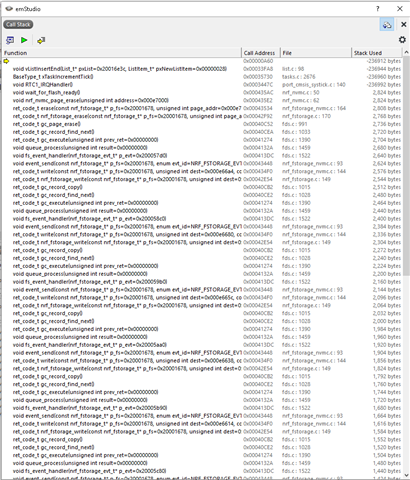Using SDK 17.1.0, SD s140_nrf52_7.2.0
I have FDS working - I can read/write records. I am using it to store ongoing logs.
When I get to a FDS_ERR_NO_SPACE_IN_FLASH, I delete a certain number of records to make room. Then call fds_gc().
fds_gc() always causes a reset. After reset however, it seems to have done the needful, I have the expected amount of flash available again, and I can continue writing records until I hit a NO_SPACE error again.
Any ideas on what to do here ?
Thanks - Daraius



